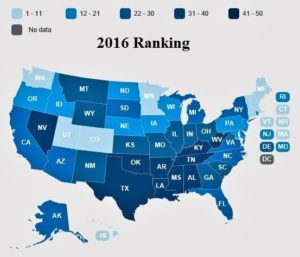- The NIH is abandoning vital clinical research centers. That’s a mistake (statnews.com)Eulogy for the clinical research center (jci.org)

NIH's clinical research hospital, known as the Clinical Center, 1950. The Clinical Center opened in 1953.
One of the most successful research enterprises funded by the NIH, the Clinical Research Center program, is dying, its highly productive life cut short...In 1910, Rockefeller University in New York built basic research labs around a suite of 20 or so hospital beds...this...translational research...using patient care to inform research and research to improve patient care...CRCs have provided human laboratories where diseases are studied and new treatments developed and tested. The CRCs include not only specialized inpatient beds and outpatient facilities, but a highly skilled group of research nurses, dietitians, research coordinators, technicians, and physicians who study patients with complex disorders...The decision to cut off funding for the CRCs comes as a surprise...the NIH leadership has ruled that funding...of the CRCs will no longer be permitted...This defunding is likely to lead to...abandonment of this vital resource for clinical research. The loss of the trained clinical nurses will be particularly damaging. The study of patients by academic physicians who intimately understand disease processes has long been under assault. Physician scientists, particularly those who focus on clinical research, have been marginalized in grant competitions for decades. The NIH’s unjustified decision to defund the CRCs further imperils their work...
- Pharmacy Week in Review: June 3, 2016 (pharmacytimes.com)
Mike Glaicar, Business Development: Pharmacy Times...(PTNN) This weekly video program provides our readers with an in-depth review of the latest news, product approvals, FDA rulings and more.
- Most scientists believe there is a ‘crisis’ reproducing experiments (statnews.com)1,500 scientists lift the lid on reproducibility (nature.com)
Placing trust in science can be easier when findings are confirmed, but a new survey finds that most scientists believe there is a "crisis" in reproducibility...Specifically, 52 percent reported that replicating results is a "significant" problem and another 38 percent believe a "slight crisis" exists. More than 70 percent of researchers have tried and failed to reproduce another scientist’s experiments, according to Nature, which canvassed 1,576 researchers. And more than half of the respondents reported that they failed to reproduce their own experiments...Yet one-third believe that failing to reproduce results means that a study is probably just incorrect, and most of those asked say that they continue to trust published findings. Moreover, 73 percent think that at least half of the papers in their own fields can be believed...Merck executive recently suggested that drug makers should be entitled to get their money back for potential treatments licensed from universities if the company is unable to reproduce the results in subsequent experiments...the pharmaceutical industry has been under pressure to release trial results in order to verify claims about their medicines. The issue accelerated in the wake of several scandals about undisclosed side effects...
- Pharmacy Week in Review: May 27, 2016 (pharmacytimes.com)
Mike Glaicar, Business Development: Pharmacy Times...(PTNN) This weekly video program provides our readers with an in-depth review of the latest news, product approvals, FDA rulings and more.
- Over-the-Phone Cancer Counseling Found to Reduce Costs (specialtypharmacytimes.com)Patient-reported outcomes in a multicenter randomized study of in-person versus telephone disclosure of genetic test results for cancer susceptibility. (meetinglibrary.asco.org)
Providing genetic test results over the phone to patients at risk for cancer-causing genetic mutations does not cause individuals additional stress and could be an effective way to help reduce costs and access burdens compared with those who receive results in person, a recent study found...While health care providers deliver results for many tests over the phone, results of genetic tests have traditionally been delivered in-person because of the complexity, potential for increased levels of distress, or confusion over what the results could mean...delivering results over phone...does not generate more distress, even for those with positive results and even now that we are using multi-gene testing...those who received their results over the phone had fewer barriers in accessing genetic counseling services compared with patients given their results in-person.
- Resistance is Futile (pharmatimes.com)
This month, the UK government's review of antimicrobial resistance sent alarm bells ringing in Whitehall and issued a call for new medicines to kill antibiotic-resistant superbugs...When economist and government minister Jim O'Neill published the final version of his long-awaited report...its message was clear – antimicrobial resistance is perhaps the single biggest threat in modern medicine...O'Neill stresses the need for new antibiotics...A truly new class of antibiotic has not been seen for decades because the lack of incentives for investment has led to reduced R&D...Many of the 'low hanging fruit' in terms of development have already been picked... Antibiotics are given for just a short course of treatment and so sales are very limited. If a new antibiotic is reserved only for use in treating resistant infections, then most of the time it will sit on the pharmacy shelf not being used. Again this disincentivises any commercial company to develop new antibiotics...With a renewed focus on AMR, big pharma has started to take interest...
- Why taking morphine, oxycodone can sometimes make pain worse (sciencemag.org)
There’s an unfortunate irony for people who rely on morphine, oxycodone, and other opioid painkillers: The drug that’s supposed to offer you relief can actually make you more sensitive to pain over time. That effect, known as hyperalgesia, could render these medications gradually less effective for chronic pain, leading people to rely on higher and higher doses. A new study...the first to look at the interaction between opioids and nerve injury for months after the pain-killing treatment was stopped—paints an especially grim picture. An opioid sets off a chain of immune signals in the spinal cord that amplifies pain rather than dulling it, even after the drug leaves the body...Yet drugs already under development might be able to reverse the effect...spinal cord...microglia—sentinels of the nervous system that scout for infection...release inflammatory signaling molecules into the spinal cord, which activate neurons that shoot pain signals up to the brain...Researchers are...exploring drugs that interrupt this pathway to treat pain or improve the performance of opioids. A clinical trial recently launched at Yale University, for example, will test whether an antibiotic that inhibits glial cells prevents the inflammatory effects of opioids.
- Report: Nevada senior citizens’ health near bottom (pvtimes.com)2016 Senior Report, Overview (americashealthrankings.org)America's Senior Report Health Ranking, United Health Foundation (cdnfiles.americashealthrankings.org)
Nevada’s senior citizens’ health and quality of life were again ranked among the lowest nationally in a UnitedHealthcare report released last week, placing 42nd...America’s Health Rankings’ 2016 Senior Report takes into account 35 factors, including senior obesity and smoking rates, prevalence of falls, flu vaccination statistics and senior volunteerism...Nevada’s ranking was dragged down by factors including the state’s excessive drinking rate among seniors — self-reported at 9.2 percent...Nevada also suffers from comparatively low community support expenditures and flu vaccination coverage...The state’s strengths include a low prevalence of falls among seniors and a low rate of preventable hospitalizations among Medicare beneficiaries...Sandra Owens, a UNLV social work professor and expert in senior care, reviewed the report and described it as a good assessment of a state with work to do to improve health care for its elderly and overall populations.
- Want to win $2 billion? Create the next antibiotic. (washingtonpost.com)
The prices of antibiotics are too low. Low prices reduce the barrier to prescribing antibiotics, while high patient demand fosters overprescribing. Consequently, an estimated 20 to 50 percent of antibiotics dispensed in hospitals and about a third of those prescribed in physicians’ offices are inappropriate or unnecessary. Overuse breeds resistance...low prices discourage the development of new antibiotics…Even without a superbug, the CDC estimates that more than 2 million people annually are infected with antibiotic-resistant bacteria and more than 23,000 people die as a result...Unless we shift course, superbugs will become a fact of life. Here is a four-pronged approach that might work:
- every hospital must implement a drug stewardship program to reduce inappropriate antibiotic use.
- reduce inappropriate prescribing for colds, sore throats and other, mostly viral or self-limiting minor ailments, every antibiotic prescription should be electronically reviewed to be certain it meets national guidelines.
- the government and industry should collaborate to fund pre-clinical research on antibiotics — in other words, studies of how drugs get into and fight infections.
- we need financial prizes for researchers and companies who develop new antibiotics.
- This Week in Managed Care: May 28, 2016 (ajmc.com)
Brian Haug, president of The American Journal of Managed Care. Welcome to This Week in Managed Care, from the Managed Markets News Network.









